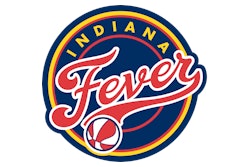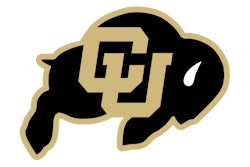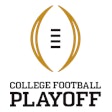Copyright 2017 News & Record (Greensboro, North Carolina)
All Rights Reserved
News & Record (Greensboro, North Carolina)
CHAPEL HILL — How could Alexis Amato have predicted this? Then a junior on the UNC-Chapel Hill rowing team, Amato didn't think it mattered that she missed the team's social media training for a class. She could make it up later, she thought.
Then she got a phone call from one of her teammates.
"Alexis, the meeting had a lot of your stuff in it," her teammate said. "You need to do something about this. I don't know what's going to happen."
A slideshow presented to the team included tweets Amato had posted in high school, where she jokingly included expletives. Amato stopped using Twitter once she went to college. She had forgotten those tweets existed.
Amato was humiliated and frightened. For all she knew, she could be dismissed from the team. She immediately texted her coaches and set up a meeting. UNC takes an educational approach to social media, so Amato apologized to her coaches and deleted the tweets. But the scare made her triple-check everything she had posted.
"I don't want people to see this the wrong way and think of me in a certain light," she said. "And I know I was using those words in a funny way, but when they are on social media, it's totally in a different context."
College athletes across the country have lost job opportunities, scholarships and even their place on a team over social media posts. But it's not all negative. Effective social media use can build relationships and open doors to opportunities. To prepare athletes for navigating the digital landscape, colleges need to teach the risks and rewards, said Laura Tierney, the founder of The Social Institute, a Durham company that advises students on social media use.
"It's having this tool that could be an amazing tool, or it could be as terrible as having like a loaded gun in your pocket, because it can destroy your life," Tierney said.
Rap tweet's consequences
On May 29, 2010, then-UNC football player Marvin Austin forever changed how all student-athletes approach social media in one tweet: "I Live in club LIV so I get the tenant rate ... bottles comin like its a giveaway."
The tweet, a quote from a song by rapper Rick Ross, drew the NCAA's attention to Austin's Twitter account, where a number of other tweets alluded to potential NCAA bylaw violations. The postings led to investigations that uncovered an academic scandal from which UNC is still recovering. The NCAA reprimanded UNC for failing to thoroughly monitor its athletes' social media accounts, among other things.
"Any time you have serious issues like that, it makes you look at how you're doing," said Paul Pogge, an associate athletics director at UNC. "And one of the things that was realized as an area for improvement was working with student-athletes on social media and how they express themselves on social media."
After the crackdown on UNC, other colleges began adopting social media restrictions. Some teams banned players from social media altogether, including Clemson football, Minnesota men's basketball and Connecticut women's basketball.
Wes Gay, an associate at the Allen Norton & Blue law firm who wrote a paper on the issue while in law school, said the social media bans instituted at some public universities could potentially violate athletes' First Amendment rights.
But no athletes have challenged the restrictions in court.
"As soon as that person did that, it would probably be the end of his or her career for the student-athlete," Gay said. "It would require a real unique individual who was willing to jeopardize their athletic eligibility, which is usually for these people something that they've dedicated the majority of their life for."
UNC restricts athletes from making inappropriate posts, which includes swear words, offensive language and posts that suggest alcohol or drug use. Rather than banning social media, the school teaches athletes about what it considers appropriate posts, which Gay said is closer to the ideal, because it preserves First Amendment protections.
UNC requires one coach from every team to monitor their athletes' social media accounts. This year, for the field hockey team, head coach Karen Shelton has that role.
Shelton requires all her players to friend her on Snapchat, Twitter, Facebook and Instagram. Shelton said she has to respond to an inappropriate social media post about once a year.
When she does, she discusses the post with the athlete.
But if the post needs further action, she disciplines the entire team. Once, after a player made an inappropriate post, Shelton required them to go on a walk together at 6 a.m.
"If one person posts something inappropriate on a team like ours, it reflects on the entire team," Shelton said.
UNC hires 5.0 Communications to conduct the social media training for athletes. Beforehand, the company uses a program to search public social media accounts for inappropriate posts to share in the slideshow.
Pogge said UNC wants athletes to make sure what they post reflects their character. After all, they have obligations to uphold to their teammates, their university and themselves, he said.
"I'm confused why they're embarrassed when it comes out in front of a couple other people when you put it out for the entire world to see," said Pogge, who isn't on social media. "Hypothetically, there's an unlimited audience for that. But when you're not behind a computer or a phone and you're actually face-to-face with a couple people that saw it, then it gets uncomfortable."
Now that Amato has graduated and started a full-time job, she knows a recruiter who operates a "three-click rule" on social media. If something inappropriate on a profile can be found in three clicks, that job applicant will no longer be considered.
But Tierney said there is a more effective way. Showing athletes' posts in front of the team risks scaring them away from posting altogether. It could keep them from reaping all the benefits of being active on social media.
"In 2017, you need to approach social media education differently than how we did two years ago, four years ago, even how some teams currently still approach social media, which is equip vs. scare the athletes," Tierney said.
Try this superfast test
You're texting with your crush, and he or she asks you to snap some risque pics of yourself. They say they totally respect your privacy, and they reassure you that they would never, ever, ever share the pics. ... What do you snap back?
And the shot clock's on: 10 seconds to decide how you would respond to this situation.
In Tierney's social media training sessions, she turns the "social sprints" into a game.
Because isn't that what social media is? A competition? You can win a job, connections, a better reputation, or you can lose opportunities, your spot on the team or your scholarship.
A former Duke field hockey player, Tierney approaches social media this way because she played the game when the rules were still ambiguous. It started with empty bleachers at Duke's field hockey games in 2005.
Tierney made Facebook and Twitter accounts for the team to improve game-time turnout. She created Facebook events for the games and invited Duke field hockey alumni, including Laura Gentile, who worked for ESPN and lived in New York. Impressed by Tierney's social media grace, Gentile helped her get a job at ESPN. Tierney worked in social media there for five to six years.
She tells the athletes, and high school and middle school students she works with to "play to your core." Use social media as a place to showcase your strengths, your character.
Because they're athletes, the stakes are even higher.
"Just like any other student, the second you click 'send,' you're playing at the biggest national stage," Tierney said. "But here's the catch with a student-athlete: People sometimes want to see you fall. And they will glorify the fall of you maybe messing up."
Lessons for life shared
Duke football cornerbacks coach Derek Jones began to speak to his players in the position group meeting — but not to talk about football.
That would come later. First, a dose of life advice: lessons in character, conduct and everything in between, with the real-world examples to back up his words. But Jones frequently circles back to social media.
"In the changing of time, as a coach, to see someone lose an opportunity because of something they posted, because of something they retweeted, something they liked," Jones said. "You really want to make sure that the young men that you make promises to look out for don't make the same mistakes."
Jones encourages them to make LinkedIn accounts, and he shares stories in the news about how athletes have faced opportunities or consequences, depending on a post.
He tells them about how social media helped him save time and money while marketing the book he wrote, how it has allowed him to connect with recruits, their parents and high school coaches. Social media has become the foundation of relationships.
Tierney said Jones represents the ideal for teaching athletes about the power of social media. Because Jones doesn't just warn about the dangers of social media - he equips his athletes to reap the benefits.
"Coaching is much bigger than X's and O's," Jones said. "Because you see something where someone has lost a job or not gotten a job because of their use of social media. I think it's always good to share with them, because they're not going to always be a football player."
Blake Richardson is a Media Hub student in the School of Media and Journalism atUNC-Chapel Hill.
Read More of Today's AB Headlines
Subscribe to Our Daily E-Newsletter
Terms and Conditions Privacy Policy































